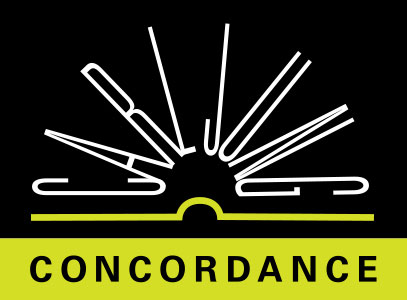A Protestant theologian often dreamed the same dream:
Dream:
Seized by a Panic Fear
He stood on a mountain slope with a deep valley below, and in it a dark lake. He knew in the dream that something had always prevented him from approaching the lake. This time he resolved to go to the water. As he approached the shore, everything grew dark and uncanny, and a gust of wind suddenly rushed over the face of the water. He was seized by a panic fear, and awoke
CW9.1 ¶ 34DREAM COMMENTARY
This dream shows us the natural symbolism. The dreamer descends into his own depths, and the way leads him to the mysterious water. And now there occurs the miracle of the pool of Bethesda: an angel comes down and touches the water, endowing it with healing power
CW9.1 ¶ 35In the dream it is the wind, the pneuma, which bloweth where it listeth. Man's descent to the water is needed in order to evoke the miracle of its coming to life. But the breath of the spirit rushing over the dark water is uncanny, like everything whose cause we do not knowsince it is not ourselves. It hints at an unseen presence, a numen to which neither human expectations nor the machinations of the will have given life. It lives of itself, and a shudder runs through the man who thought that “spirit” was merely what he believes, what he makes himself, what is said in books, or what people talk about
But when it [spirit] happens spontaneously it is a spookish thing, and primitive fear seizes the naïve mind. The elders of the Elgonyi tribe in Kenya gave me exactly the same description of the nocturnal god whom they call the “maker of fear.” “He comes to you,” they said, “like a cold gust of wind, and you shudder, or he goes whistling round in the tall grass”an African Pan who glides among the reeds in the haunted noontide hour, playing on his pipes and frightening the shepherds
CW9.1 ¶ 35The way of the soul in search of its lost father like Sophia seeking Bythosleads to the water, to the dark mirror that reposes at its bottom. Whoever has elected for the state of spiritual poverty, the true heritage of Protestantism carried to its logical conclusion, goes the way of the soul that leads to the water. This water is no figure of speech, but a living symbol of the dark psyche. This is best illustrated by the foregoing dream
CW9.1 ¶ 33We must surely go the way of the waters, which always tend downward, if we would raise up the treasure, the precious heritage of the father. In the Gnostic hymn to the soul, the son is sent forth by his parents to seek the pearl that fell from the King's crown. It lies at the bottom of a deep well, guarded by a dragon, in the land of the Egyptiansthat land of fleshpots and drunkenness with all its material and spiritual riches. The son and heir sets out to fetch the jewel, but forgets himself and his task in the orgies of Egyptian worldliness, until a letter from his father reminds him what his duty is. He then sets out for the water and plunges into the dark depths of the well, where he finds the pearl on the bottom, and in the end offers it to the highest divinity
CW9.1 ¶ 37A hymn, ascribed to Bardesanes, dates from an age that resembled ours in more than one respect. Mankind looked and waited, and it was a fish“levatus de profundo” (drawn from the deep)that became the symbol of the saviour, the bringer of healing
CW9.1 ¶ 38DREAMS ALWAYS ABOUT WATER
As I wrote these lines, I received a letter from Vancouver, from a person unknown to me. The writer is puzzled by his dreams, which are always about water:
CW9.1 ¶ 39Dream:
Dreams about Water
Almost every time I dream it is about water: either I am having a bath, or the water closet is overflowing, or a pipe is bursting, or my home has drifted down to the water's edge, or I see an acquaintance about to sink into water, or I am trying to get out of water, or I am having a bath and the tub is about to overflow, etc.
CW9.1 ¶ 39DREAM COMMENTARY
Water is the commonest symbol for the unconscious. The lake in the valley is the unconscious, which lies, as it were, underneath consciousness, so that it is often referred to as the “subconscious,” usually with the pejorative connotation of an inferior consciousness. Water is the “valley spirit,” the water dragon of Tao, whose nature resembles watera yang embraced in the yin. Psychologically, therefore, water means spirit that has become unconscious
CW9.1 ¶ 40So the dream of the theologian is quite right in telling him that down by the water he could experience the working of the living spirit like a miracle of healing in the pool of Bethesda. The descent into the depths always seems to precede the ascent
CW9.1 ¶ 40